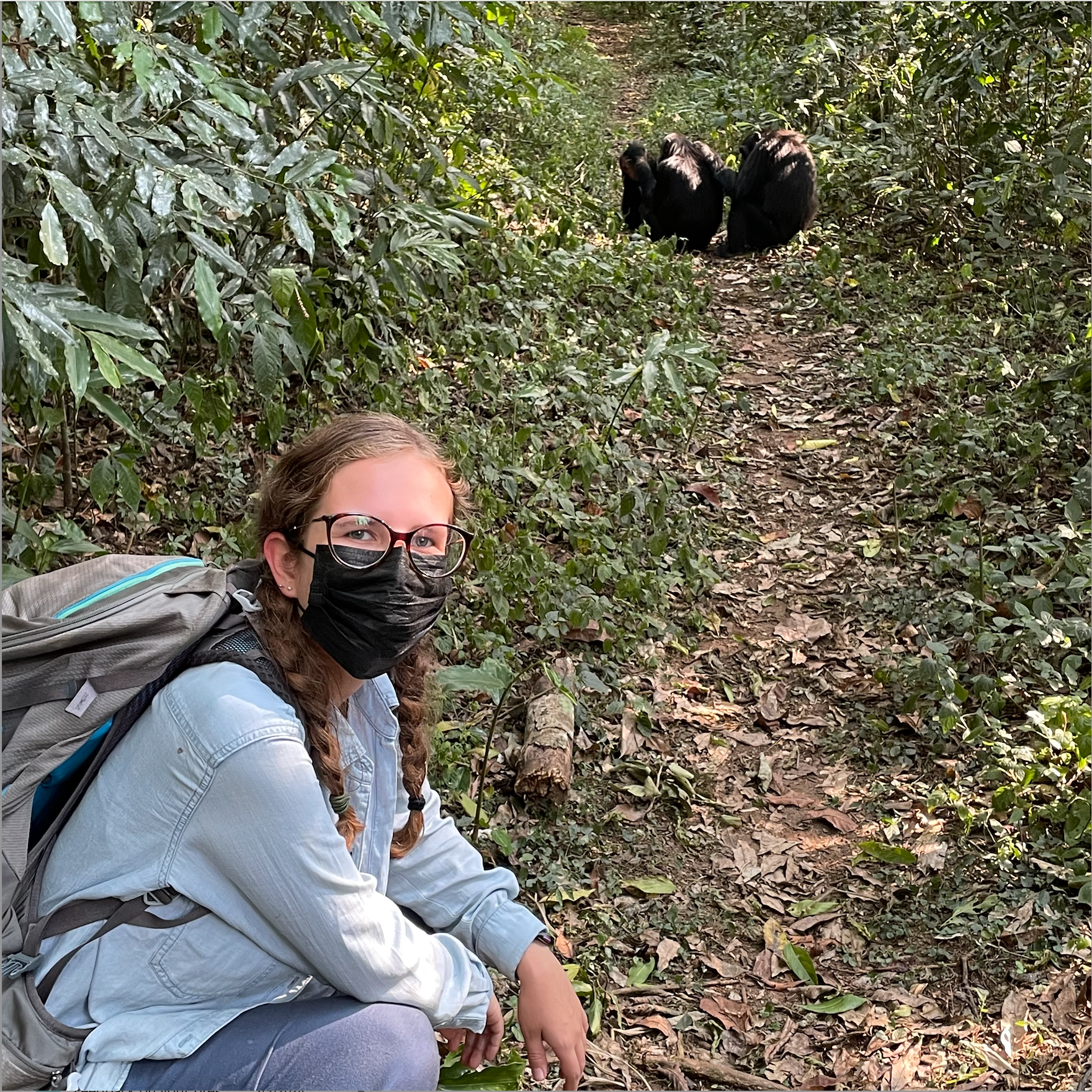Eleanor Matthews Awarded Student Prize for Best Poster at the meeting of the Southwestern Association of Biological Anthropologists
Departmental News
Posted: Nov 18, 2024 - 12:00pm

Eleanor Matthews, Evolutionary Anthropology Doctoral Student, was awarded the sudent prize for best poster at the meeting of the Southwestern Association of Biological Anthropologists for her work Strategic Aggression Among Wild Male Chimpanzees (Pan troglodytes schweinfurthii).
Abstract
Within the social environment of wild chimpanzees, adult males must balance maintaining bonds with aggressive competition for dominance and consequent higher reproductive success. These bonds provide an additional pathway to reproductive success; more bonds and participation in coalitions increases rank. Here, we test the hypothesis that males should be motivated to strategically prevent bond formation and maintenance. We analyzed 15 years of all-occurrence behavioral data from the Kanyawara community and identified instances where adult males aggressively interrupted grooming bouts between other adult males (n=137). We used GLMMs to identify (a) if strategy use is influenced by rank and (b) if strategy use varies over a male’s life. Including year and ID as random effects and controlling for overall aggression, we found that strategy use is predicted by rank (High-rank: Estimate=-4.203·10-4, p<0.0001, Mid-rank: Estimate=-4.120x10-4, p<0.0001, Low-rank: Estimate=-4.199·10-4, p<0.0001), and that alpha males use this strategy significantly more than other males (Tukey-HSD, alpha-high rank (p<0.0001), alpha-midrank (p<0.001), alpha-low rank (p<0.01)). Additionally, we found that strategy use peaked during the tenure of the alpha male and decreased when that same male was ranked otherwise, though not significantly. These results indicate the presence of a dominance strategy among alpha males. However, because we found little variation in strategy use across alphas, this behavior is not a dominance style. These results support the hypothesis that males monitor social interactions in their party, and act in response.
Eleanor J. Matthews1, Martin N. Muller1, Yukun Zhang2, Ashley Menante3, Emily Otali3, Margaret Kobusingye3, Melissa Emery Thompson1, Richard Wrangham4, Drew Enigk1, Zarin P. Machanda5
1 Department of Anthropology, University of New Mexico
2 Department of Biology, Boston University
3 Kibale Chimpanzee Project, Fort Portal, Uganda
4 Department of Human Evolutionary Biology, Harvard University
5 Department of Anthropology, Tufts University
